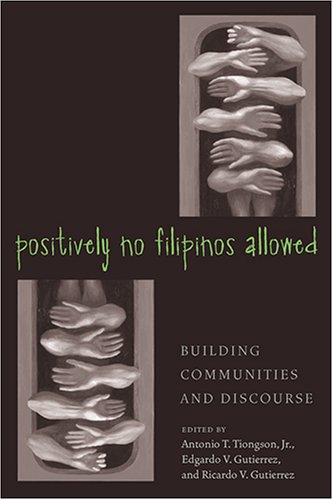

Most ebook files are in PDF format, so you can easily read them using various software such as Foxit Reader or directly on the Google Chrome browser.
Some ebook files are released by publishers in other formats such as .awz, .mobi, .epub, .fb2, etc. You may need to install specific software to read these formats on mobile/PC, such as Calibre.
Please read the tutorial at this link: https://ebookbell.com/faq
We offer FREE conversion to the popular formats you request; however, this may take some time. Therefore, right after payment, please email us, and we will try to provide the service as quickly as possible.
For some exceptional file formats or broken links (if any), please refrain from opening any disputes. Instead, email us first, and we will try to assist within a maximum of 6 hours.
EbookBell Team

4.0
96 reviews

ISBN 10: 1592131220
ISBN 13: 978-1592131228
Author: Antonio Tiongson, Ricardo Gutierrez, Edgardo Gutierrez
The contributors to this volume examine the ways in which the colonial history of the Philippines has shaped Filipino American identity, culture, and community formation.
I. Imperial Legacies and Filipino Subjectivities
1. Patterns of Reform, Repetition, and Return in the First Centennial of the Filipino Revolution, 1896–1996
2. On Filipinos, Filipino Americans, and U.S. Imperialism: Interview with Oscar V. Campomanes
3. Filipino Bodies, Lynching, and the Language of Empire
4. “Just Ten Years Removed from a Bolo and a Breech-cloth”: The Sexualization of the Filipino “Menace
II. Public Policy, Law, and the Construction of Filipinos
5. Losing Little Manila: Race and Redevelopment in Filipina/o Stockton, California
6. Filipino Americans, Foreigner Discrimination, and the Lines of Racial Sovereignty
III. Reconfiguring the Scope of Filipino Politics
7. On the Politics of (Filipino) Youth Culture: Interview with Theodore S. Gonzalves
8. Colonial Amnesia: Rethinking Filipino “American” Settler Empowerment in the U.S. Colony of Hawai‘i
IV. Resignifying “Filipino American”
9. “A Million Deaths?”: Genocide and the “Filipino American” Condition of Possibility
10. Reflections on the Trajectory of Filipino/a American Studies: Interview with Rick Bonus
11. Do You Mis(recognize) Me?: Filipina Americans in Popular Music and the Problem of Invisibility
12. A Different Breed of Filipino Balikbayans: The Ambiguities of (Re-)turning
positively no filipinos allowed building
positively filipino
positively filipino magazine
positively no filipinos allowed building communities and discourse
philippine building code
Tags: Antonio Tiongson, Ricardo Gutierrez, Edgardo Gutierrez, Positively No Filipinos Allowed, Building Communities, Discourse, Asian American History, Culture